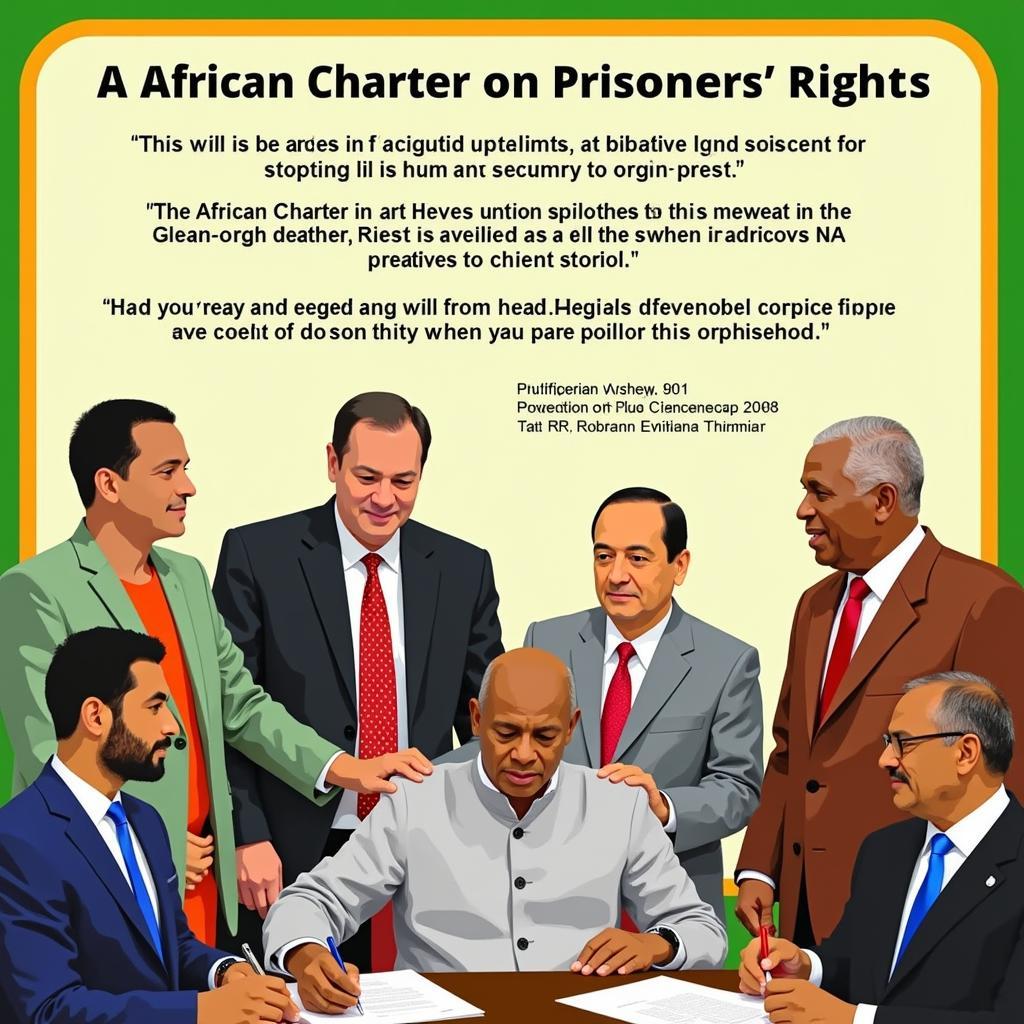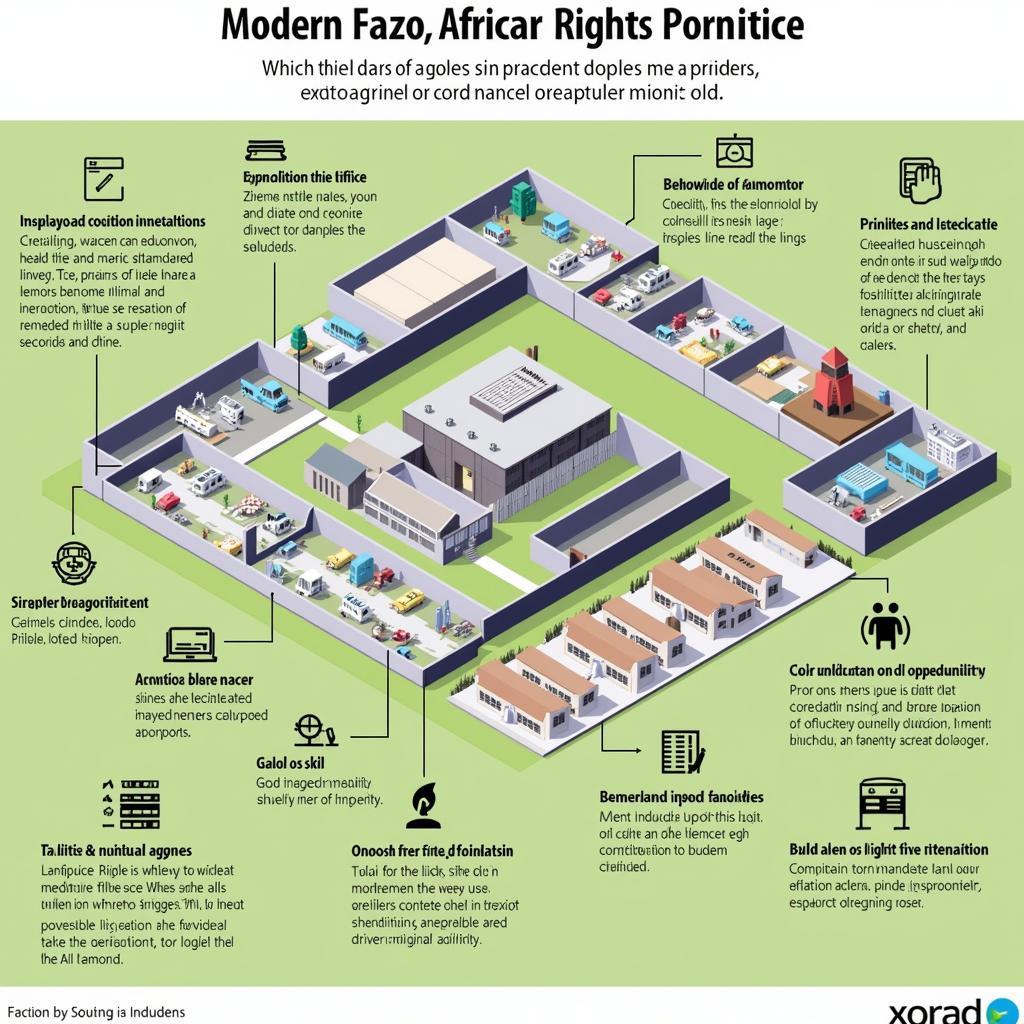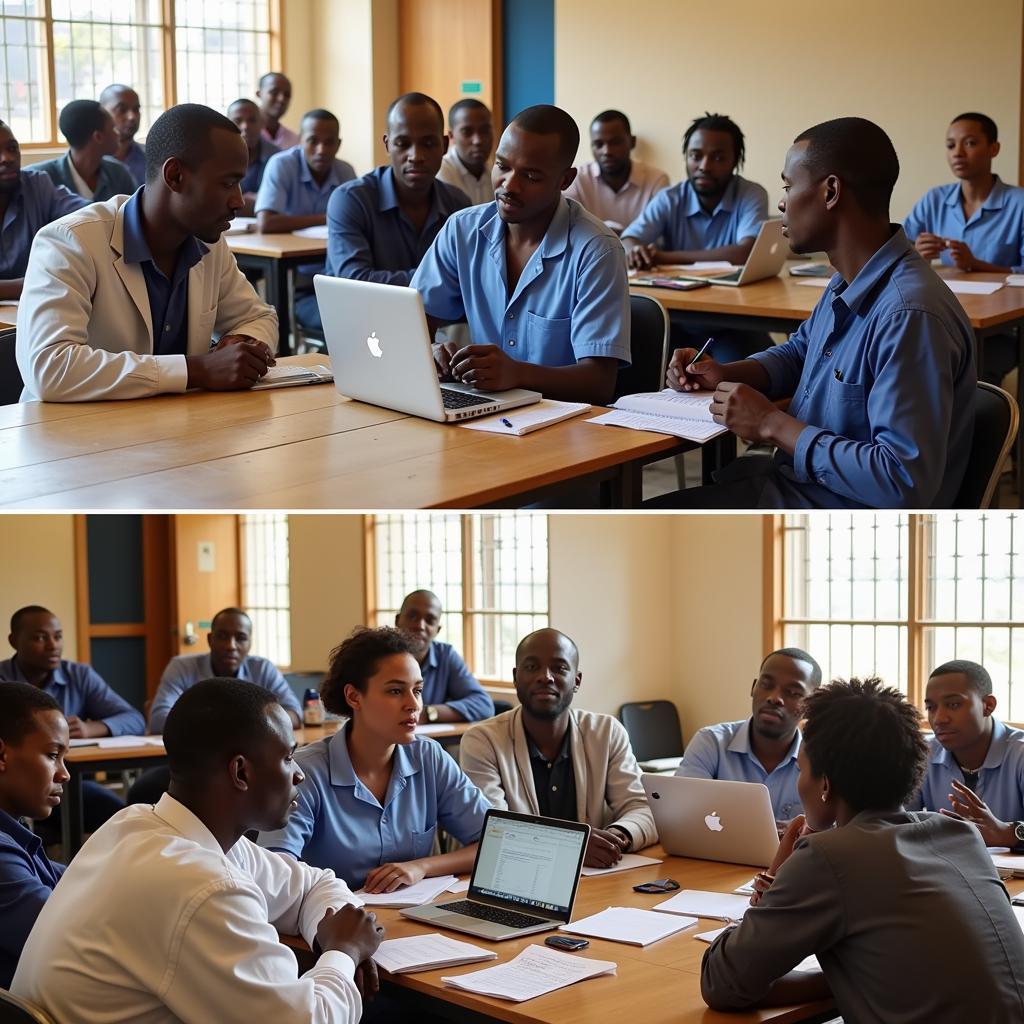African Charter on Prisoners’ Rights 2006: A Comprehensive Guide
The African Charter on Prisoners’ Rights 2006 is a landmark human rights instrument that aims to protect and promote the rights of incarcerated individuals across the African continent. Adopted by the African Union, this Charter reflects a commitment to uphold the dignity and fundamental freedoms of all people, including those deprived of liberty.
Understanding the Charter’s Significance
The African Charter on Prisoners’ Rights 2006 holds immense importance as it addresses a vulnerable group often overlooked within the human rights framework. By specifically focusing on the rights of prisoners, the Charter seeks to ensure humane treatment, improve prison conditions, and promote rehabilitation and social reintegration.
 African Charter on Prisoners' Rights Signing Ceremony
African Charter on Prisoners' Rights Signing Ceremony
Key Provisions of the African Charter on Prisoners’ Rights
The Charter outlines a comprehensive set of rights for prisoners, covering various aspects of their treatment and well-being. Some of the key provisions include:
-
Right to Dignity and Non-Discrimination: The Charter emphasizes that prisoners retain their fundamental human rights and should be treated with dignity and respect. It prohibits discrimination based on race, ethnicity, gender, religion, or any other status.
-
Right to Life and Security: The Charter guarantees the right to life and prohibits torture, cruel, inhuman, or degrading treatment or punishment. It mandates that prisoners have access to adequate healthcare, sanitation, and a safe environment.
-
Right to a Fair Trial and Legal Representation: Prisoners have the right to a fair trial, access to legal counsel, and the right to appeal against their conviction or sentence. The Charter emphasizes the presumption of innocence until proven guilty.
-
Right to Communication and Family Visits: The Charter recognizes the importance of maintaining family ties and allows prisoners to communicate with family and friends. It also provides for regular visits from family members, legal representatives, and religious leaders.
-
Right to Education, Work, and Recreation: To promote rehabilitation, the Charter encourages the provision of educational opportunities, vocational training, and meaningful work for prisoners. It also recognizes the importance of recreational activities for their physical and mental well-being.
 Modern African Prison Facility with Improved Conditions
Modern African Prison Facility with Improved Conditions
Implementation and Challenges
While the African Charter on Prisoners’ Rights provides a strong legal framework, its implementation across the continent faces challenges. These include:
-
Resource Constraints: Many African countries struggle with limited resources and infrastructure, making it challenging to implement the Charter’s provisions fully.
-
Lack of Awareness: There is often a lack of awareness and understanding of the Charter among law enforcement officials, prison staff, and even prisoners themselves.
-
Overcrowding and Poor Prison Conditions: Overcrowding remains a significant issue in many African prisons, hindering the effective realization of prisoners’ rights.
-
Corruption and Lack of Accountability: Corruption within the justice system and lack of accountability mechanisms can undermine the implementation of the Charter’s provisions.
The Role of Civil Society and International Organizations
Civil society organizations and international bodies play a crucial role in advocating for prisoners’ rights and supporting the implementation of the African Charter.
“The African Charter on Prisoners’ Rights is a beacon of hope for incarcerated individuals across Africa,” states Dr. Abena Agyeman, a leading human rights advocate and expert on prison reform in Africa. “It is imperative that governments, civil society, and international partners work collaboratively to translate the Charter’s principles into tangible improvements in the lives of prisoners.”
 Rehabilitation Program in an African Prison
Rehabilitation Program in an African Prison
Conclusion
The African Charter on Prisoners’ Rights 2006 represents a significant step towards protecting and promoting the rights of incarcerated individuals in Africa. While challenges remain in its full implementation, the Charter serves as a guiding document for improving prison conditions, ensuring humane treatment, and fostering the rehabilitation and social reintegration of prisoners. Continued efforts are needed from governments, civil society, and international partners to ensure that the rights enshrined in the Charter become a reality for all prisoners across the continent.
FAQ
- What is the main objective of the African Charter on Prisoners’ Rights?
- How does the Charter address the issue of overcrowding in African prisons?
- What role can civil society organizations play in promoting the Charter’s implementation?
- What are some of the key challenges hindering the effective implementation of the Charter?
- How does the Charter contribute to achieving the broader goals of human rights in Africa?
For further information and support regarding the African Charter on Prisoners’ Rights 2006, please contact us:
Phone Number: +255768904061
Email: [email protected]
Address: Mbarali DC Mawindi, Kangaga, Tanzania.
Our dedicated team is available 24/7 to assist you.
